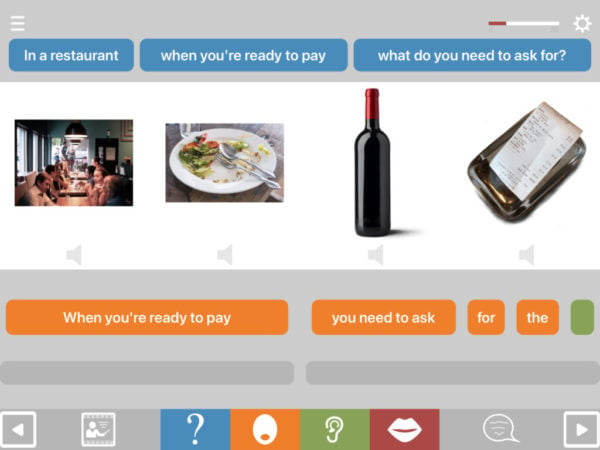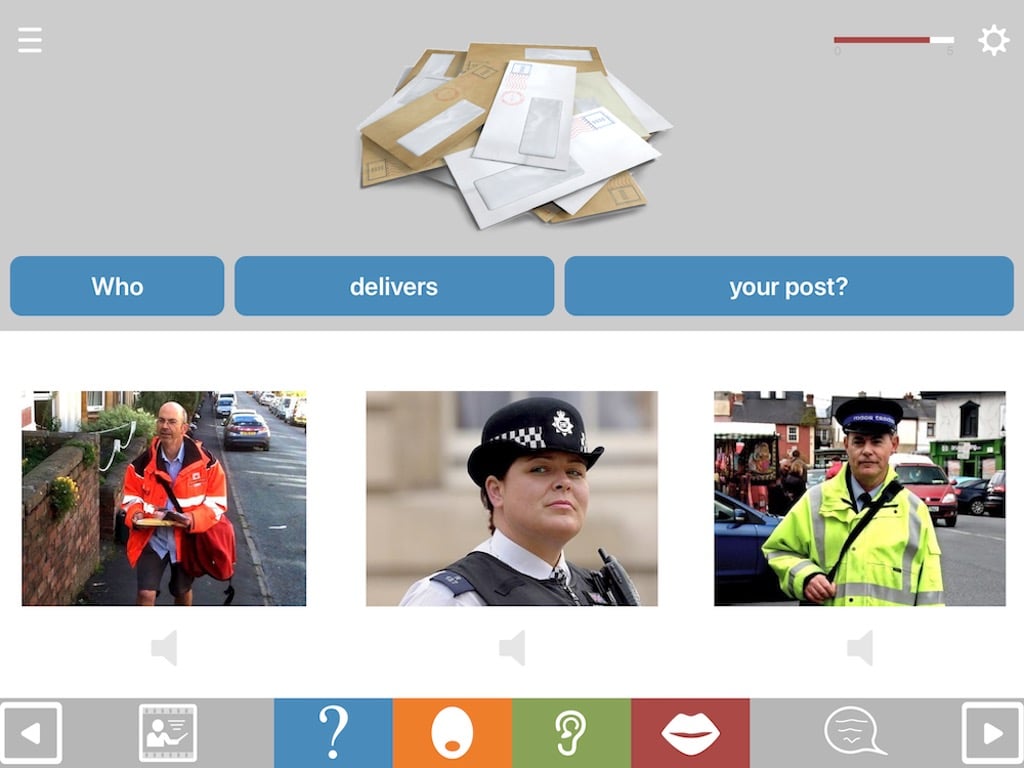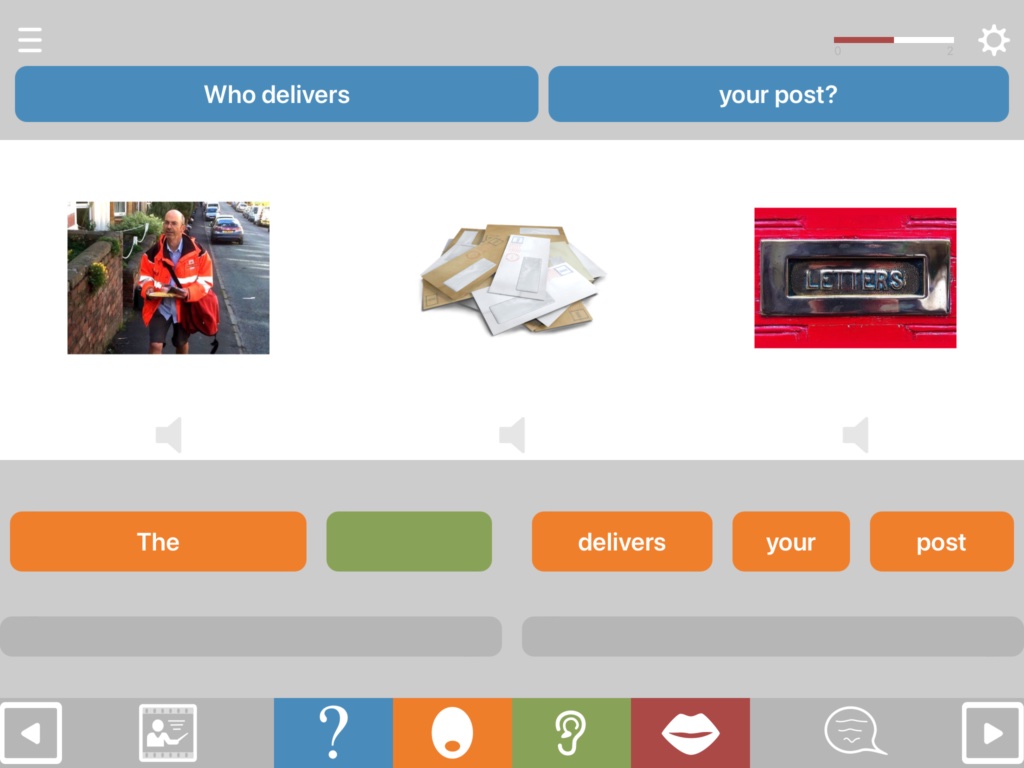
Purpose
The Perspectives module is designed to tackle vulnerabilities in the user’s understanding of wh-questions. These are questions beginning with words such as “who“, “what“, “when“, “where” and “how“. Understanding wh-questions involves the ability to process the thematic roles of each element in a sentence. This ability is essential for effective sentence comprehension, sentence production and word-finding, especially word-finding in context.
What are thematic roles?
In the example pictured above, “in a restaurant” plays the thematic role of location (“where?”), “when you’re ready to pay” defines the time (“when?”), and “you” plays the role of agent or doer (“who?”) of the activity defined by the verb, “ask for”. The missing element that the question itself focusses on is the bill, which defines the thing to be asked for, a role often known as the theme or patient (“what?”).
The elements to which the thematic roles are assigned are known as the arguments of the verb. In this example, the verb “ask for” requires a minimum of two arguments, agent (the asker) and theme (the thing being asked for).
Why do we need to process thematic roles?
Having a firm grasp of verbs and thematic roles is important not only for understanding but also for word-finding and sentence production. This is because word-finding and sentence production both occur most often under the governance of verbs and thematic roles. It’s largely through thematic roles that we are able to translate our thoughts into language. The wh-question words serve as cognitive-linguistic signposts to direct people’s attention to different concepts as we express ourselves. Many people with aphasia have difficulty interpreting these signposts, and research has shown that working on understanding wh questions can improve both word finding and sentence production (Jones 1986, Le Dorze et al. 1991).
Verbs and thematic roles help us to think in ways that are compatible with language. Our understanding of thematic roles enables us to direct our internal focus in an organised way that lends itself to successful word-finding and sentence production.
How does Perspectives work?
The Perspectives module works on verbs and thematic roles through a format that on the face of it looks quite similar to the QA module. But there’s a very important difference, and that lies in the nature of the distractors in the multiple choice component.


Multiple choice is a well established format in therapy exercises for word finding difficulties in aphasia. It requires the person to select target words or phrases from a number of options, including the target word/phrase and a number of distractors or foils. These distractors are typically other words that share properties with the target, often other members of the same category, so-called semantic coordinates.
The reason semantic coordinates are so often used is that research has shown that this type of word commonly competes for activation in word-finding, especially in the context of word-finding tasks such as picture naming. This is borne out by the fact that errors in word-finding made by people with aphasia are often semantic errors, e.g. “chair” for table, “dog” for cat.
This is the approach taken in the multiple choice componenet of the QA module.
Contextual Competition
However, using this type of distractor alone misses an important aspect of the challenges of word retrieval in real life contexts as opposed to in clinical therapy tasks – that of competition from words derived from the particular context in which word retrieval is being required. The competitors will vary from one context to another. The Perspectives module is designed to offer practice at dealing with this contextual competition.
As in QA, all the questions in Perspectives are wh-questions. In QA the user can often arrive at the answer without necessarily understanding the wh question. In the example above, you only need to be able to associate the letters with the postman. You don’t need to understand the precise focus of the question. In the Perspectives module however, it is possible to arrive at the correct answer only by understanding the precise focus of the wh question.
It’s for this reason that so many people with aphasia, particularly those with agrammatic types of aphasia, find the Perspectives type of question a lot more challenging than the QA type.
For more information on how thematic roles relate to word-finding, see Contextual Competition in Aphasia (insert link).